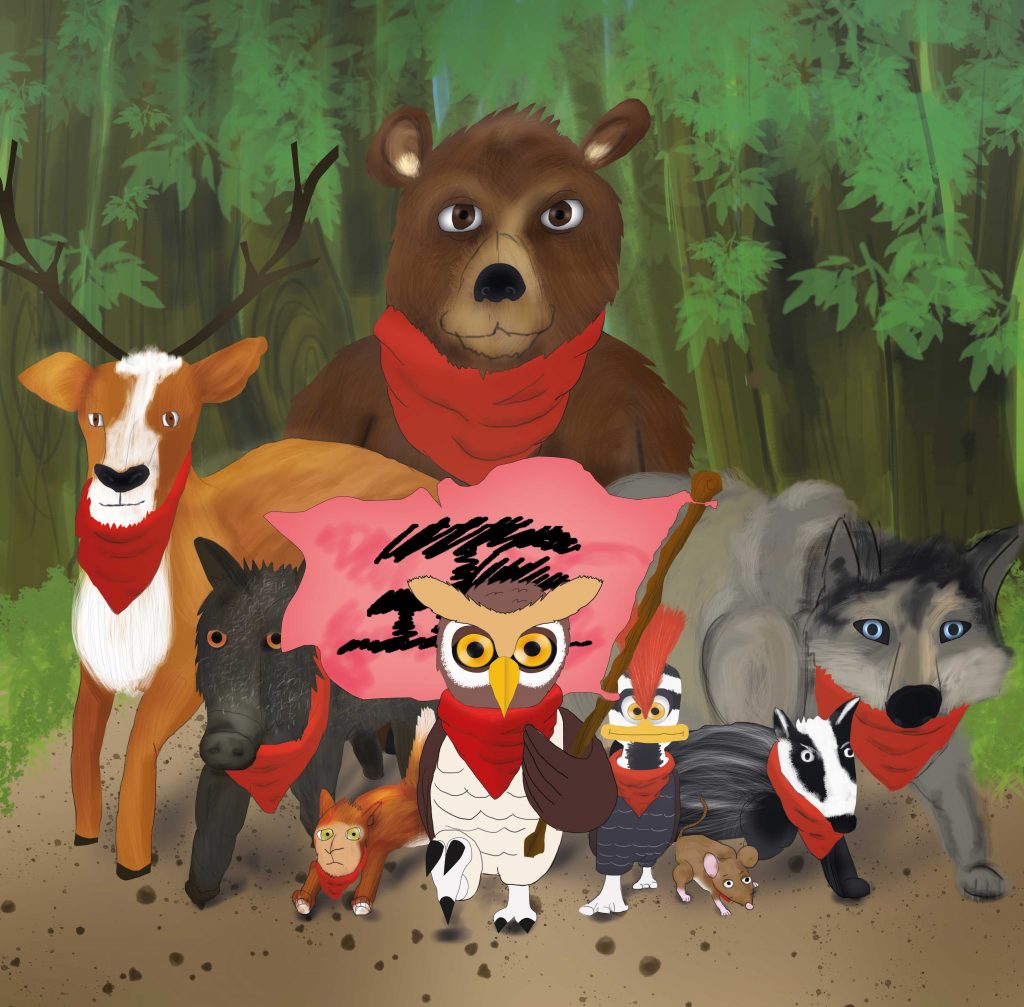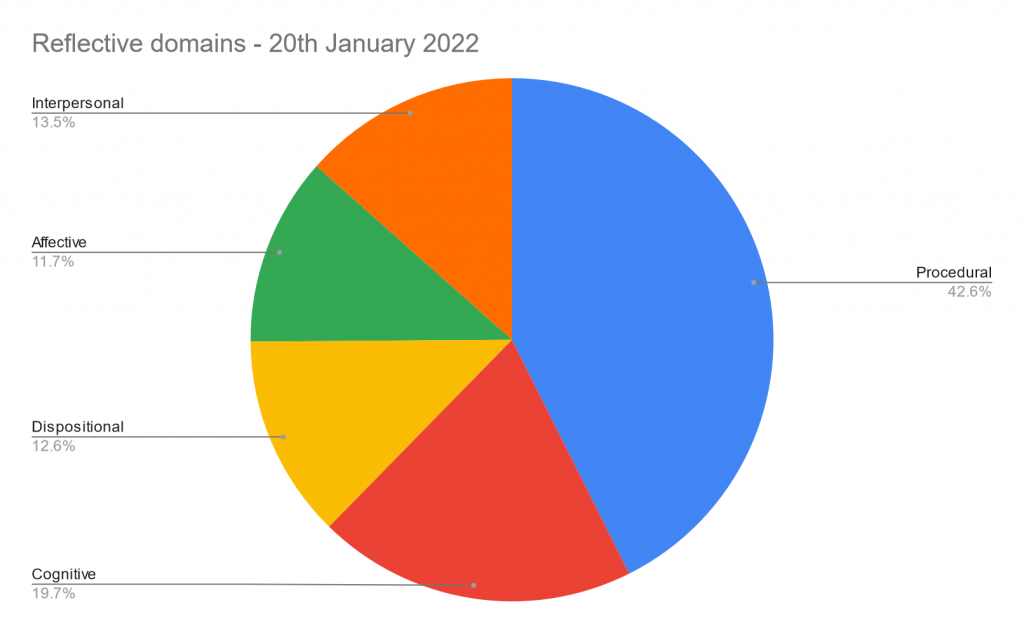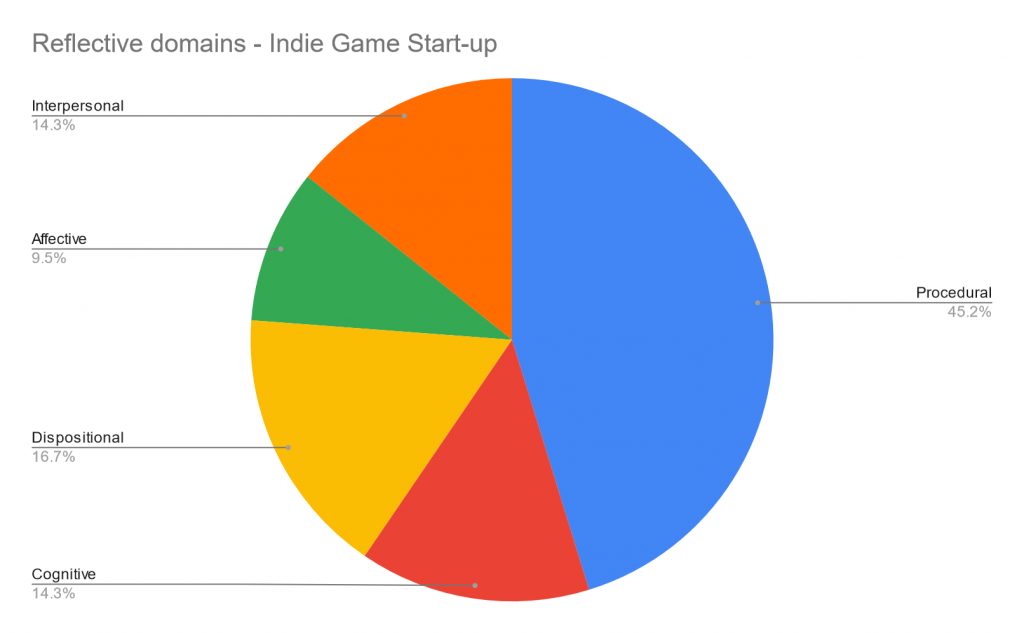I have come to the end of yet another project during this course and with that, I have also come to the end of the first year. This will be the last blog post that I will write for the Indie Game Start-up unit as this project has come to a close.
I am going to use this post to reflect on my experience of working on the Woodland Chaos project with one other person. I am going to explore what went well during this project, what went wrong and where there is potential to improve.
What went well?
It was really good to work with Tomas on this project as it was great to work with someone who showed a genuine willingness to learn and develop new skills, as well as developing their existing skill set. Tomas also had genuine enthusiasm for this project and brought a lot of ideas to the project. We were very consistent about holding weekly phone calls on a Tuesday afternoon to discuss our progress, as well as what we need to do week by week.

We also developed a really strong game concept and we went into great detail when developing the mechanics and hooks within the game. We also came up with some appealing characters that the player would come across when playing the game. I also believe I did some strong concept art for the characters as well as depicting scenes from the game. I am particularly pleased with the two posters I designed to promote the game.
Despite the technical hitches, I am pleased with how the trailer came out and I think we were able to sell the game effectively even if there is a lack of gameplay footage.
What went wrong?
We ran out of time.
Tomas and I spent a large amount of time working on assets for the game, such as characters, animations and locations. We also spent a large amount of time on developing the game concept, as well as the mechanics. It is definitely not a bad thing that we spent so much time on these areas as it is a project that we are passionate about and we wanted this to look good, as well as for the concept to be communicated clearly, but it meant that we did not get onto developing this within Unity until very late into the unit.
As has been the case with all projects that I have worked in during this unit, as I have no experience with game development, I was unable to scope properly for this project. I felt ill-equipped to estimate how much time it takes to produce a game or a vertical slice for a game as I have not experienced this. I believe this was the same for Tomas. We also did not have the level of skill required to create some of the functionality for the game.

The prototype builds for the game also do not work properly and we did not have time to fix the problems, meaning we now have to submit a faulty prototype. I am worried this is going to affect our grades. We will now have to hope that the strength of our game concept, as well as the quality of the assets and promotional materials we have produced towards this project.
What can be improved? What has potential?
As mentioned above, Tomas and I believe we have a really strong concept and both of us are keen to develop this further – either within this degree or outside of this degree. Although we were unable to come up with a working prototype and the project was perhaps too big to realise for a degree project, and even more so during a degree that is being done on a part time basis, we believe this game could be developed further.
We only worked on this project as two people, but I envisage that we could develop this game with full functionality if we got a few more people on board, especially people who are more experienced and have expertise in scripting for games. Luckily, as this unit was based on the business side of indie games, we did have some time to consider how we present the game to potential investors, which means that if we did want to commit to developing this game in the long term, we have some materials prepared that we could work into and show potential investors. These materials include our pitch deck and our business plan.
I got feedback for my business plan a lot earlier than the other assignments as this had to be submitted earlier. Despite trying to go full time freelance on two occasions in my life, I have never actually written a business plan until now. In the end, I got a mark of 63/100 for this and the main I feedback I got indicated that I lack market awareness, I could have done more research into my potential audience and that although the budgeting and the estimate of 1 year for production is realistic, we need to put more detail into the amount of hours we would spend per week on each task. These are areas we would need to further consider and do more research into if we were to pitch this game concept to investors for real. We would then need to update our business plan and pitch deck to reflect this.
With the game itself, several of the assets for the map were rushed as we were running out of time and therefore, they do not reflect my level of artistic or technical skill. If we were to make the game for real, I would revise these assets and I would work into them some more. Of course, this would also involved expanding the number of characters and doing designs for far more characters, as well as animations and designs for the locations that they are based in.
When developing the game for real, we will need to put a lot more development into the tasks that the owl has to carry out. There is a lot of potential here and we can pit a lot more detail into the tasks to ensure that they are captivating, enjoyable and that the player cares about the characters and the carrying out of the tasks to meet the end goal. We would need to put a lot of consideration into the dialogue to ensure that it is intriguing and reflects the nature and motives of the characters and we will also need to consider how each task overlaps with one another.
While we did have some project management mechanisms in place, such as a Kanban board on Trello, I was not very diligent about maintaining this and I think I should have paid more attention to this. Unlike with the previous two units, we did not employ any form of project management framework, such as Scrum, Kanban or Waterfall, which perhaps could have helped us if we had done.
There are a probably a lot more areas for improvement here but these are the ones I can immediately think of if we are going to develop this project further.
Reflective domains
Since coming across the concept of reflective domains during the first unit, I have been tagging every one of my posts throughout this year with each of the five reflective domains to indicate which ones they address. The reflective domains are as follows: affective, cognitive, dispositional, interpersonal and procedural.
When I first began tracking how I meet the reflective domains on 24th February of 2021, these were the results.

Procedural was by far the most dominant, with the second most addressed being cognitive which was still way behind cognitive. The remaining domains were barely acknowledged at this point. I have been keeping track of these since then to see if there have been any changes, as I have made the effort to consider each domain in my practice.
I have just done another count of each of my posts to see how much of a share the reflective domains have now. Here are the results of this count.

It is definitely a significant change. Procedural still has the largest share, which is inevitable as most of what I post consists of me saying what I have been doing and how I have done it, but the procedural no longer has a disproportionate share of the reflective domains. Each of the other reflective domains now have a fairer share and are more proportionately addressed in each of my posts.
The above counts all posts I have done across all units, not just this one. However, I have decided to work out how much I address each reflective domain in posts I made just for this unit. Here are the results.

As you can see, the results of how much I meet each reflective domain just for this unit are very similar and reflective of the results for the whole year, meaning that I have developed good habits and I am addressing each domain in my practice.
I have come to recognise the importance of addressing each of the reflective domains in my practice. Although I need to consider how I am going to develop a project, I need to continue looking at how various factors, both internal and external could influence how the project develops, as well as posing challenges. Using the reflective domains has helped me to do this.
I have decided that from second year, I will retire these reflective domain tags. Although they have helped me during the course of the first year and they aided me in reflecting upon my work, I believe that they have now fulfilled purpose and that I no longer to continuously track them through tagging posts. I just need to maintain the good habits and practices that I have developed.
Conclusion
While I am somewhat depressed we could not produce a functioning prototype of our game, I am very proud of the creative work that I produced for this game. I believe the biggest success of this project has been the game concept that we have come up as it has a lot of potential to be taken further and developed. Throughout the course of the project, I gravitated mostly towards the more artistic aspects of production, which is not surprising as I am from an artistic background and if I go into the game industry, I would look for roles that are orientated around the art that goes into games. Having said this, I am still open minded to exploring technical areas such as scripting, although I have less confidence here.
For now, the Woodland Chaos project is going to be shelved. I have checked out the next unit of this course and I can see that it stipulates that we must work solo, meaning Tomas and I will not be able to continue working on the project during this unit. The next opportunity we will have to continue working on Woodland Chaos would be as part of the major project towards the end of the second year, but this will depend on what both mine and Tomas’ ambitions and career goals are towards the end of the course and whether we feel this project would reflect those. If we were to go ahead, it would also be good to have more people on board to work on the project with us.
Failing that, there is also of course the opportunity to work on the game after our degree finishes in 2023. Although it is a long way off, once we have finished our studies, we will have more time to work on it and we will have more time to prepare it to be pitched to investors.
This is the end of this unit and with it, this is also the end of the first year. As we applied for an extension to the deadline for this unit from 4th January to today, the transition from first year to second year will be largely seamless. From this Monday, I will begin my second year of the masters and the next unit, which will be titled ‘Game Development’. I have not had a lot of thought about what I want to make for this next unit but one of my initial thoughts is to attempt something with virtual reality (VR). As I develop a project for this next unit, I will be sure to record it in this blog.